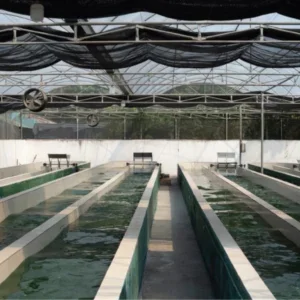
When registered dietician Dawn Jackson Blatner first referenced the term ‘flexitarian’ in her book ‘The Flexitarian Diet’ back in 2010, little could she have foreseen its future importance – not necessarily because of what it actually is – that’s still up for debate, but because of its wider application. Indeed, this style of eating, which encompasses mostly plant-based foods while allowing meat and other animal products in moderation has exploded in recent years, buoyed by health policy concerns and climate change activism.
Blatner was never reinventing the wheel. Semi-vegetarian diets were around long before her book, and while other terms such as vegetable forward have entered the lexicon too, all share an essential commonality. Meanwhile, other terms such as ‘reducetarianism’ and ‘lessetarianism’, have served to highlight the health benefits not only of reducing personal meat consumption but, by extension, helping to reduce greenhouse gas emissions within the environment more generally.
Yet the ongoing debate about what flexitarianism actually is shouldn’t come as any great surprise, given that even strict vegetarians and vegans have staked out their own particular territories. Strict vegans invariably condemn flexitarianism on moral grounds (such as animal rights, environmental concerns) in that meat is still consumed, for example, while other vegetarians or vegans will take a more flexible approach, arguing that any reduction in animal meat consumption and a corresponding increase in plant-based eating patterns is both beneficial and desirable. Moreover, the latter contend that by showing greater flexibility it increases the chances of their particular argument being brought to the attention of the public at large.
Indeed, the latter stance has been working, highlighted in a recent survey from ProVeg International and Innova Market Insights as part of the Smart Protein Project. The poll’s findings – which encompass more than 7,500 people in ten European countries, gauging their attitudes towards consuming plant-based foods, their trust in relation to such products, their current consumption habits, and, of course, the key drivers behind their food choices – showed 30% of respondents were following a flexitarian diet. Moreover, just under 40% intended consuming less meat products in the near future, 46% had already done so and 30% stated they intended reducing their dairy consumption.
“While taste is the most important attribute for plant-based foods, creating delicious plant-based meat alternatives that resonate with consumers can be a complex, costly and challenging process, particularly around savoury taste and creating succulence, juiciness and a moreish flavour.”
Ronan Moloney, Kerry Asia Pacific, Middle East & Africa
5.86 million
The number of lives that could be saved by 2040 from going green.
Lancet Planetary Health
Meanwhile, the proportion of flexitarians who had already reduced their meat consumption ‘heavily’ was even higher at 73%, and 7% specifically identified themselves as plant-based eaters. Within this sample, flexitarian diets were seen not only as offering the greatest health benefits, in terms of lowering rates of obesity and heart disease connected to excessive consumption of carbon-intensive red meat and processed foods, but also reducing carbon emissions too.
A greener future
Whatever one’s own dietary stance, the potential health benefits of adopting plant-based approaches shouldn’t be underestimated. Indeed, a February 2021 study from Lancet Planetary Health estimated that by 2040 up to 5.86 million lives a year could be saved globally by going green. This estimate assumes officials continue incorporating eco-friendly health policies into wider plans aimed at cutting greenhouse gas emissions to reduce global warming. It also assumes a scenario where the goals of the 2015 Paris Climate Agreement of ‘well below 2°C’ are met.
Kerry, one of the world’s largest taste and nutrition companies, is deploying a plant-based solution to help F&B brands create new products to keep up with changing consumer preferences – changes it noted from its own study conducted in the summer of 2021, which showed 49% of consumers globally are already factoring sustainability into their food and drink purchases, and that their understanding of the issue is evolving from environmental and social responsibility to including sustainable wellbeing and sustainable nutrition. That means typical associations with sustainability, such as sustainable packaging and environmental preservation, are now considered to be standard for many consumers. The survey of 14,000 shoppers across 18 countries also showed people expect F&B brands to take their environmental responsibility more seriously.
Meanwhile, a separate Asia-Pacific study from Kerry examining opinions on plant-based meats found that 62% of respondents were interested in buying meat alternatives, while 44% said they intended to increase consumption of such products. Indeed, Asia is something of a plant-based powerhouse, now the second-largest region in the world for meat alternatives, accounting for 22% of global sales by value, according to the company. And by 2035, it’s expected to account for two-thirds of global consumption of alternative proteins.
Unsurprisingly, Kerry sees significant mileage in that particular market for companies to leverage its Radicle by Kerry platform. The company’s portfolio of plant-based solutions helps F&B brands deliver on taste, functionality, sustainability and nutrition. Its taste systems, for instance, have been specifically developed to help mask the off-notes that consumers often report with plant-based protein ingredients.
In addition, it also ensures the ingredients chosen can perform just like its conventional animal-based counterparts, from textural qualities to freshness, while still allowing a sustainable profile and high nutritional value, the company claims. As Ronan Moloney, VP and GM, Food and Meat for Kerry Asia Pacific, Middle East and Africa puts it: “While taste is the most important attribute for plant-based foods, creating delicious plant-based meat alternatives that resonate with consumers can be a complex, costly and challenging process, particularly around savoury taste and creating succulence, juiciness and a moreish flavour.”
Plant-based printing
Technology, meanwhile, is assuming increasing importance in this carbon reduction, sustainability narrative. This can be seen in the growing use of 3D printing – a recent major example being the University of Osaka, which has found a way of 3D printing Wagyu beef – in a process, which is touted as a promising method to produce sustainable cuts of cultured meat closely resembling original products. The method works by using the histological structure of Wagyu beef as a blueprint, meaning 3D-printers can produce tailor-made complex structures, like muscle fibres, fat, and blood vessels. To overcome the various challenges, the team started with two types of stem cells, called bovine satellite cells and adipose-derived stem cells. Under the right laboratory conditions, the university claims these “multipotent” cells can be coaxed to differentiate into every type of cell needed to produce the cultured meat in question.
Meanwhile, individual fibres including muscle, fat, or blood vessels, were fabricated from these cells using bioprinting. The fibres were then arranged in 3D, following the histological structure, to reproduce the structure of the real Wagyu meat, which was finally sliced perpendicularly. This process made the reconstruction of the complex meat tissue structure possible in a customisable manner, including the marbling not found in other cuts of beef. Expectations are that customers will eventually be able to order cultured meat with their desired amount of fat, based on taste and health considerations.
Taking an entirely different (plant-based) approach though, even if the technology is the same, has been Redefine Meat. Founded in 2018 by Adam Lahav and Eshchar Ben-Shitrit, the Tel Aviv-headquartered food technology company has made a 3D printer capable of printing plant-based alternative meat products by combining 3D printing technology, artificial intelligence and food formulations. Ingredients, which include soy and pea protein, as well as chickpeas, beetroot, and coconut fat, are intended to mimic both the texture and taste of beef or lamb steaks. By incorporating plant-based ingredients, so the argument goes, it allows both vegans and meat lovers to enjoy a meat-eating experience that doesn’t compromise on taste, health or sustainability. Moreover, all products are free from GMOs, antibiotics, cholesterol and animal-based products. Whilst taste is self-evidently the preserve of the individual, there’s also little doubt regarding the seriousness of Redefine Meat’s corporate intentions. The company successfully raised $29m in its last funding round back in February, and has received the very public backing of celebrity chef Marco Pierre White, who recently confirmed he would sell the steaks across his restaurants in the UK.
Substance over style
Ultimately, however, it does come down to a question of taste. China-based Angel Yeast, for example, recently launched AngeoPro F80, a vegan-friendly, allergen-free, natural-origin yeast protein. Intended as complementary to plant-based protein sources – to meet the growing demand for protein across the globe – it contains properties that can neutralise off-flavours and boost overall taste. Yeast protein is derived from Saccharomyces cerevisiae and, crucially, its production process adds food-grade enzymes and processing aids that help the partial removal of non-protein elements of yeast protein products, leading to a build-up of protein concentrate to more than 75%. Its importance as an optimum protein source for food formulations, due to its balanced composition of amino acids and micronutrients cannot be understated either. In short, as a high-quality protein source with high bioavailability; it ranks the same as soybean in terms of nutritional level.
“It is high time that the outsized climate impacts of our animal agriculture-dominated food system were firmly recognised on the international stage. We must act together, and we must act now.”
Rachel Dreskin, Plant Based Foods Association
62%
The percentage of respondents interested in buying meat alternatives according to an Asia-Pacific study.
Kerry
Similarly, as a unique microbial protein, yeast protein not only provides similar nutritional value to animal protein, but also addresses those concerns involving plant-based protein, such as genetic modification and shortage of land resources. Angel Yeast says that not only is it protein content on a par with plant-based protein, it also contains essential amino acids that are nearly double the amount of the WHO and the FAC recommendations.
As Rachel Dreskin, CEO of the Plant Based Foods Association, said ahead of Cop26, moving towards a plant-based food system goes far beyond pleasing consumer wants and needs. In Dreskin’s words: “It is high time that the outsized climate impacts of our animal agriculture-dominated food system were firmly recognised on the international stage, and that a decisive shift towards plants is seen as vital to achieving emissions reduction goals. We must act together, and we must act now.”





